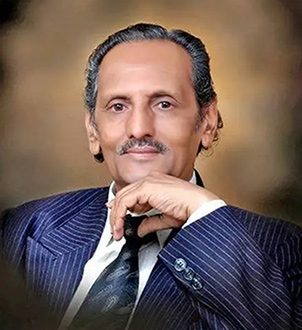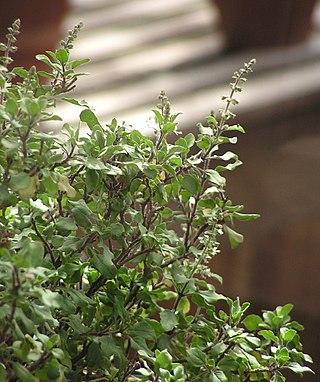
Kuppalli Venkatappa Puttappa, popularly known by his pen name Kuvempu, was an Indian poet, playwright, novelist and critic. He is widely regarded as the greatest Kannada poet of the 20th century. He was the first Kannada writer to receive the Jnanpith Award.

Bangalore Saroja Devi is an Indian actress who has acted in Kannada, Tamil, Telugu and Hindi films. She acted in around 200 films over seven decades. She is known by the epithets "Abhinaya Saraswathi" in Kannada and "Kannadathu Paingili" in Tamil. She is one of the most successful actresses in the history of Indian cinema.

Kokkare Hosahalli Shekh Haider Nissar Ahmed was an Indian poet and writer in the Kannada language. He was awarded the Padma Shri (2008), the Rajyotsava Award (1981) and the Pampa award for his work (2017). He became a household name for his work Nityotsava, which is a poem about Karnataka, a piece he composed after seeing Jog falls. He has numerous poems, translations and children's books to his credit. He is known for using simple words that resonate deeply with the public in his literary work.

Saalumarada Thimmakka, also known as Aala Marada Thimmakka, is an Indian environmentalist from the state of Karnataka, noted for her work in planting and tending to 385 banyan trees along a 45-kilometre (28 mi) stretch of highway between Hulikal and Kudur. She has also planted nearly 8000 other trees. With the support of her husband, she found solace in planting trees.

Chandrashekhara Basavanneppa Kambara is a prominent Indian poet, playwright, folklorist, film director in Kannada language and the founder-vice-chancellor of Kannada University in Hampi also president of the Sahitya Akademi, country's premier literary institution, after Vinayak Krishna Gokak (1983) and U.R. Ananthamurthy (1993). He is known for effective adaptation of the North Karnataka dialect of the Kannada language in his plays, and poems, in a similar style as in the works of D.R. Bendre.

Tulasi Vivaha, also called Tulasi Kalyanam, is a Hindu festival, in which a symbolic ceremonial wedding takes place between a tulasi plant or holy basil and a shaligrama or an amla branch. Tulasi Vivaha signifies the end of the monsoon, and the beginning of the wedding season in Hinduism.

Devegowda Javaregowda, known as De Ja Gou or simply Javaregowda, was an Indian Kannada writer, folklorist, researcher, scholar and academic. He was disciple of authors T.N. Srikantaiah and Kuvempu. His literary career spans over decades in which he wrote over thirty-four biographies in Kannada language and other works including children's literature. He campaigned for the promotion of Kannada language. He had received Pampa Prashasti (1998), Padma Shri (2001) and the Karnataka Ratna (2008) awards for his contributions in literature and education. He became a centenarian in 2015 and died on 30 May 2016.
The Halakki-Vokkalu are an indigenous tribe of Karnataka, India. They are found predominantly in Uttara Kannada district and are distinct from Vokkaligas.

Tulasi, or Vrinda is a sacred plant in Hindu tradition. Hindus regard it as an earthly manifestation of the goddess Tulasi; she is regarded as the avatar of Lakshmi, and thus the consort of the god Vishnu. In another iteration, as Vrinda, she is married to Jalandhara. The offering of its leaves is recommended in ritualistic worship of Vishnu and his avatars, like Krishna and Vithoba.
Gowda is a surname native to Karnataka state of India. It is mainly found among the Vokkaligas in South Karnataka, Kurubas and the Lingayats in north Karnataka. It is also used by other communities like Namadhari Naiks, Billavas. Gowda was originally an honorific used by the administrative head of a village. Typically, such a head owned land and held political and social sway in the village. Among Kurubas, it was used to refer to the head of the community.
Baba Sewa Singh is an Indian social worker and environmentalist, involved in the restoration and maintenance of the historic Gurudwaras at Khadoor Sahib. Baba Sewa Singh is a recipient of the Guru Gobind Singh Foundation Sewa Award in 2004. The Government of India honored him in 2010, with the fourth highest civilian award of Padma Shri.

R. Nagarathnamma (1926–2012) was an Indian theatre personality and the founder of Stree Nataka Mandali, an all-women theatre group based in Bengaluru. A recipient of the Sangeet Natak Akademi Award, she was honored by the Government of India, in 2012, with the fourth highest Indian civilian award of Padma Shri.

Padma Shri recipient Harekala Hajabba is an Indian social activist and orange vendor living and working in the city of Mangaluru, Karnataka, India. He saved money from his business to build a school in his village. In 2020, he was awarded the Padma Shri, India's fourth-highest civilian award, for his initiative and achievement.
Yashodhara Dasappa (1905-1980) was an Indian independence activist, Gandhian, social reformer and a Minister in the state of Karnataka. She was politically aligned with the Indian National Congress and served as a Minister in the Karnataka state governments headed by S. R. Kanthi (1962) and S. Nijalingappa (1969).

Sulagitti Narasamma was an Indian midwife from Pavagada town, in Tumkur district of Karnataka state. She performed more than 20,000 traditional deliveries free of charge over a 70-year period of service in deprived regions of Karnataka with no medical facilities. Her work was honored with the National Citizen's award of India in 2012 and the country's fourth highest civilian award, the Padma Shri, in 2018.

Ibrahim Sutar was an Indian social worker and poet known for folk-music performances across Karnataka and neighboring states which spread the message of Hindu–Muslim communal unity.

Chami Murmu is an Indian environmental activist and is known for planting trees in India. She had planted 2,500,000 trees in India till she was awarded the Nari Shakti Puraskar in 2019.

Sukri Bommanagowda is a folk singer belonging to the Halakki Vokkaliga tribe in Ankola, Karnataka, India. She has received several awards, including the Padma Shri, one of India's highest civilian honours, for her contributions to the arts, and her work in preserving traditional tribal music.

Manjamma Jogathii, is an Indian theatre actress, singer and dancer of Jogathi Nritya, a folk dance form of North Karnataka. In 2019, she became the first transgender woman to be the president of Karnataka Janapada Academy, state's top institution for folk arts. In January 2021, Government of India announced Padma Shri award for her contribution to the field of folk arts.

Amai Mahalinga Naik is an innovative farmer from Adyanadka village in Dakshina Kannada district in the Indian State of Karnataka who single-handedly developed an organic agricultural farm with a zero-energy micro-irrigation system. This he achieved by digging tunnels deep into the sloping hills on which his land was located and tapping groundwater trapped in the bowels of the hills through the tunnels. In fact it was only in his sixth attempt in which he dug a tunnel of length 315 feet Naik could strike success. All the previous five attempts in which he dug tunnels of length at least 35 meters ended up in failing to strike a water source. The water sourced through this tunnel was used for watering the plants in his farm. After he struck success in his sixth attempt, he dug one more tunnel to bring water for drinking and household usage. The relentless pursuit of this tunneling operation earned him the nick name "The Tunnel Man of Karnataka". He also single-handedly constructed about 300 percolation trenches in the hills surrounding the farm and two revetments and a tank of 12,000 litres capacity to fill-up the revetments. His work transformed a deserted and barren plot of land into a lush oasis comprising arecanut palms, coconut trees, cashew trees, banana saplings and pepper vines. Naik’s farm has become a model-farmland and attracts over 1,000 visitors a year including several foreign tourists.
















